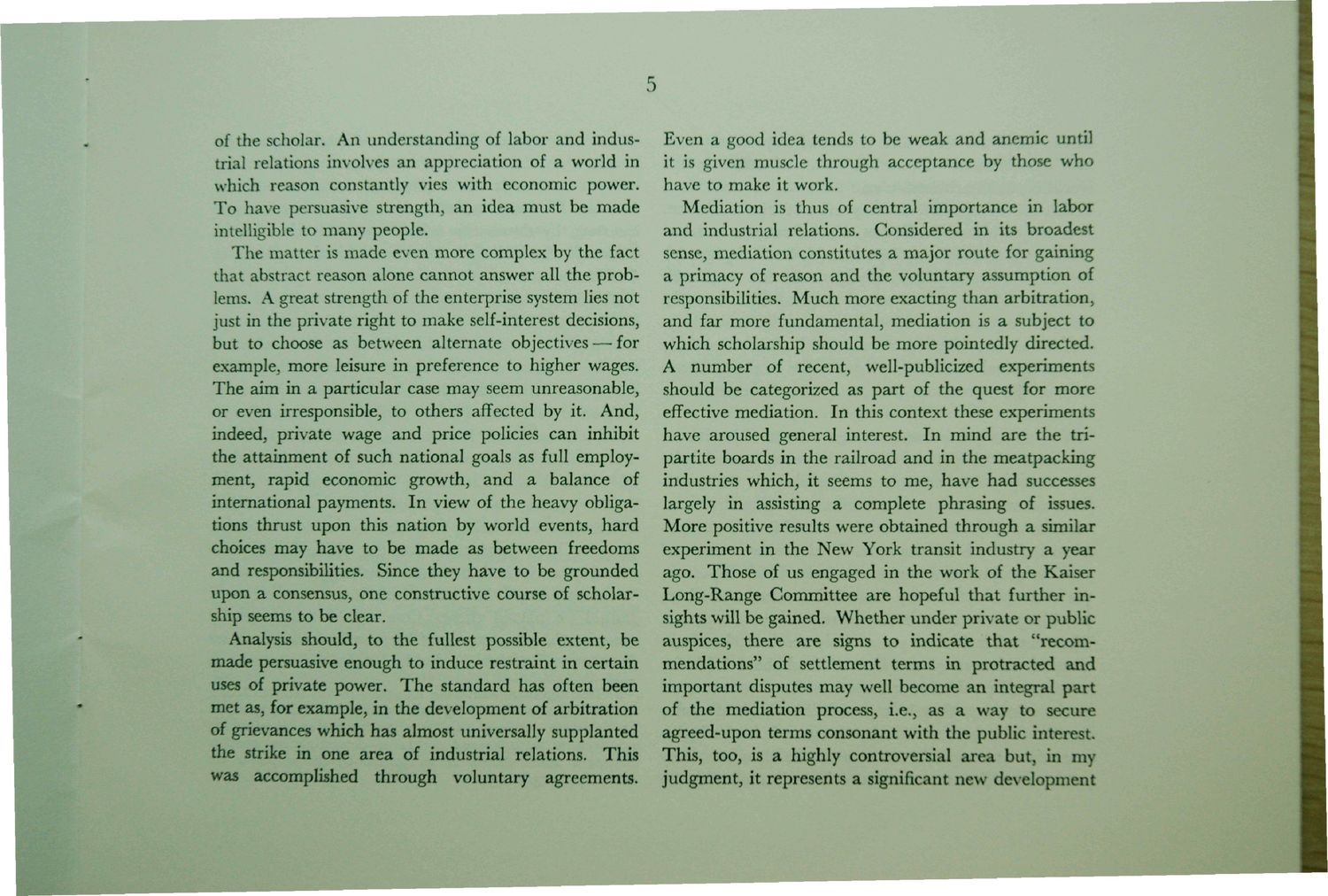| |
| |
Caption: Dedication - Labor and Industrial Relations
This is a reduced-resolution page image for fast online browsing.

EXTRACTED TEXT FROM PAGE:
5 of the scholar. An understanding of labor and industrial relations involves an appreciation of a world in which reason constantly vies with economic power. To have persuasive strength, an idea must be made intelligible to many people. The matter is made even more complex by the fact that abstract reason alone cannot answer all the problems. A great strength of the enterprise system lies not just in the private right to make self-interest decisions, but to choose as between alternate objectives — for example, more leisure in preference to higher wages. The aim in a particular case may seem unreasonable, or even irresponsible, to others affected by it. And, indeed, private wage and price policies can inhibit the attainment of such national goals as full employment, rapid economic growth, and a balance of international payments. In view of the heavy obligations thrust upon this nation by world events, hard choices may have to be made as between freedoms and responsibilities. Since they have to be grounded upon a consensus, one constructive course of scholarship seems to be clear. Analysis should, to the fullest possible extent, be made persuasive enough to induce restraint in certain uses of private power. The standard has often been met as, for example, in the development of arbitration of grievances which has almost universally supplanted the strike in one area of industrial relations. This was accomplished through voluntary agreements. Even a good idea tends to be weak and anemic until it is given muscle through acceptance by those who have to make it work. Mediation is thus of central importance in labor and industrial relations. Considered in its broadest sense, mediation constitutes a major route for gaining a primacy of reason and the voluntary assumption of responsibilities. Much more exacting than arbitration, and far more fundamental, mediation is a subject to which scholarship should be more pointedly directed. A number of recent, well-publicized experiments should be categorized as part of the quest for more effective mediation. In this context these experiments have aroused general interest. In mind are the tripartite boards in the railroad and in the meatpacking industries which, it seems to me, have had successes largely in assisting a complete phrasing of issues. More positive results were obtained through a similar experiment in the New York transit industry a year ago. Those of us engaged in the work of the Kaiser Long-Range Committee are hopeful that further insights will be gained. Whether under private or public auspices, there are signs to indicate that "recommendations" of settlement terms in protracted and important disputes may well become an integral part of the mediation process, i.e., as a way to secure agreed-upon terms consonant with the public interest. This, too, is a highly controversial area but, in my judgment, it represents a significant new development
| |